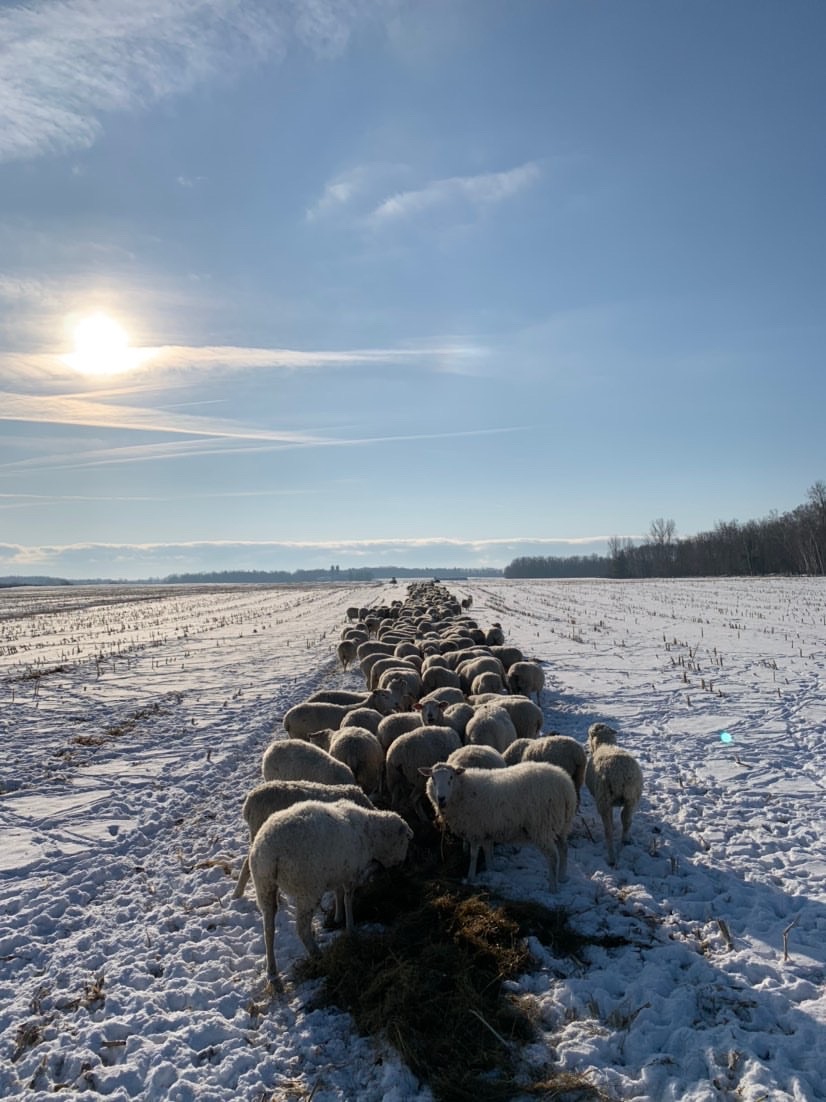Get $60 OFF throughout your first 2 boxes with code HOLIDAY60.
Offer ends in ::
Set your location to shop products local to you.
NIKU Farms
Thank you for your feedback!
If you requested further assistance, you’ll receive an email confirmation and we’ll follow up within 24 hours.
Got more questions? Start a new chat.
End chat
Are you sure you want to end the chat?
Cancel
Are you sure?
Your response has not been submitted. To process your request for further assistance, please hit the 'Back' button below, complete the form and submit your request.
Close Chat
How do farmers maintain 100% grass-fed animals during the wintertime? Separate animals handle the winter weather differently, and we’re sharing what our farmers do on their local Ontario pastures.

Bison:
As warm weather begins to disappear, the Bison at Big Rock Bison begin to grow their fur and develop thick hides. Naturally, many animals migrate south to warmer weather during the Wintertime, but Bison will always remain where they are. Their hides and fur grow thick and retain internal warmth so well that the snow on their fur doesn’t even melt! That goes to show how all of their body heat remains internal and does not escape.
Lamb:
Lamb is grass-fed throughout all Spring, Summer, and Fall on rotating pastures. 100% grass-fed lamb farmers rely on all-natural hay that was previously gathered and preserved during the year. As the seasons change, most male lambs are harvested and a few are selected to remain throughout winter as breeding lambs – along with her female lamb – also known as “ewes”. Our partner farmer Carrie from Woolley’s Lamb brings her lambs to graze on harvested corn stalks and also harvests grass from her apple and cherry orchards for them to eat January through April. As the wintertime begins to end, her ewes get ready to breed and produce new babies in time for the luscious green pastures coming in the near Springtime, and the cycle repeats!
Cattle:
Wintertime for 100% grass-fed beef is quite similar to lamb. They are fed hay that was preserved during warmer months by their expert farmers and is well taken care of throughout the colder temperatures to make sure they stay warm and healthy. Their thick hides and fat are enough to keep them warm, and wind breaks are also provided in harsh winter weather. If you’ve ever wondered what those giant cylindrical haystacks on open fields are for…that’s thehay farmers prepare for wintertime!
Pigs:
Pasture-raised pigs in the wintertime live the same lives they usually do on our local farms. However, as the land begins to freeze over and grass becomes less abundant, farmers may bring out hay, just like with cows and lamb, that they’ve prepared during the warmer seasons. Pigs love to graze and prance around fields, so providing this hay allows for our pigs to roam freely.
Chicken:
Fresh pasture-raised chickens are hard to come by during the wintertime. That’s because most farmers harvest their chickens once the weather gets cold. Pasture chicken farmers raise a large amount of poultry during the warmer seasons of Summer, Spring, and Fall, then freeze them in the wintertime to preserve freshness. Farmers do this because the ground freezes over in the winter, and grasses are no longer able to provide nutrients and little insects and grubs are no longer available for chickens to feed on. That’s why, if you don’t receive pasture-raised chicken in the wintertime as a frozen product – it means your chicken was not raised locally, or it may not be fully pasture-raised.

when you subscribe to our mailing list.